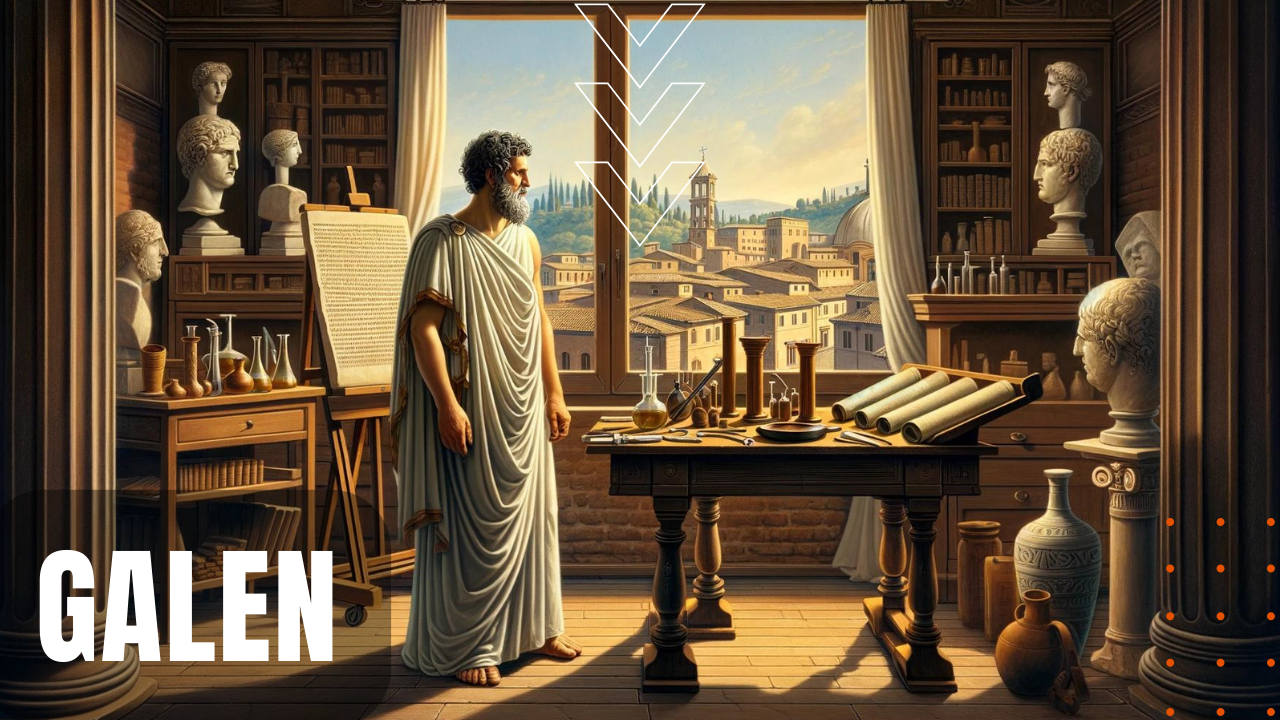Galen

Born into a wealthy, educated family at Pergamum in present-day Turkey in 129 A.D., Claudius Galenus or simply Galen became a therapeute or “attendant” of the god of medicine Asclepius in his teens years, which put him in direct fraternity with magistrates, senators, literary men and high-ranking civil servants. While his father Nicon wanted Galen to study philosophy or politics, after Asclepius came to Nicon in a dream, urging him to let his son study medicine, Galen began his studies first at the sanctuary of Asclepius.
The Center of Intellectual Life
After his father passed away in 148 A.D., a now wealthy Galen studied medicine in Smyrna, Corinth and Alexandria, before spending the rest of his life in Rome. At the age of 32, his lectures and anatomical demonstrations soon placed him at the heart of intellectual life in the Roman capital, where he became chief physician for co-Emperors Marcus Aurelius and Lucius Verus. Considered one of the great intellectuals of the Second Sophistic period, Galen’s work falls into three main categories defined as medical, philosophical and Philological, the later study a branch of knowledge that deals with the structure, historical development and relationships of a language or languages.
Early Experimental Physiologists
Building upon Hippocrates’ notions of humors and pathology, as well as the anatomical knowledge of other notable Alexandrian physicians such as Herophilus of Chalcedon, Galen was one of the first experimental physiologists to rely heavily on observation and reason, researching the organ functions of kidneys and spinal cords in controlled experiments. Galen’s teachings would dominate Western medicine until the Renaissance, and while a fire in the Temple of Peace destroyed many of his manuscripts in 191 A.D., what remains of his work has established Galen as one of the most prolific and influential physicians and medical writers of the ancient Greco-Roman Empires, including some twenty volumes in Greek, while other volumes have survived in Arabic and medieval Latin translations. Passing away in 216 A.D. at 87 years of age, Galen’s reliance on the extrapolation of animal dissections to human anatomical function has been criticized by some medical historians as inaccurate, making the writings, philosophy and observations of Galen, one of the most successful physicians of ancient time.
